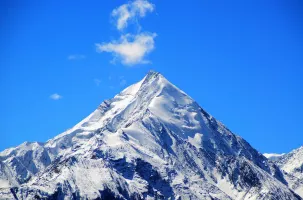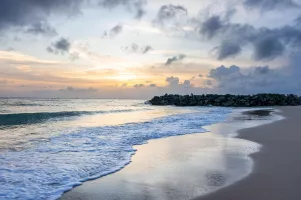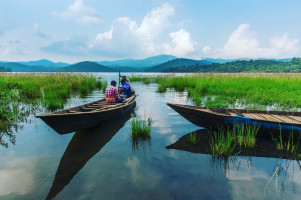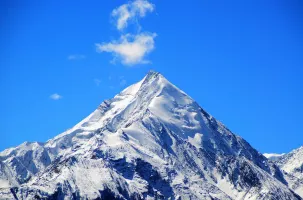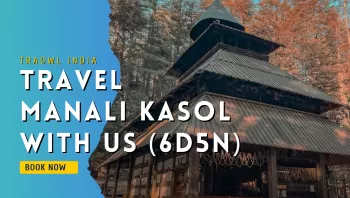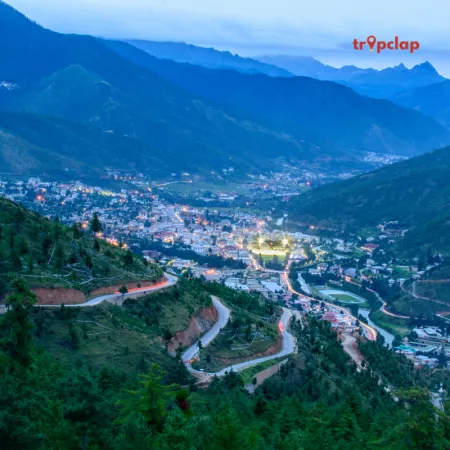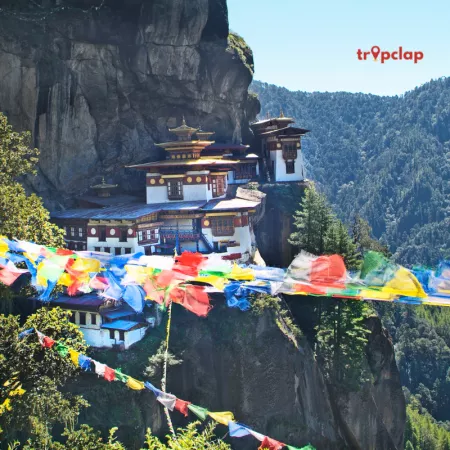Phobjikha Valley
Duration
2 to 4 Days
2 to 4 Days
Best time to visit
Oct-Dec
Oct-Dec
Theme
Hill Station, Wildlife
Hill Station, Wildlife
Phobjikha Valley Travel Guide
Phobjikha Valley, located in the beautiful country of Bhutan, is a destination that offers a perfect blend of natural beauty, rich culture, and unique experiences. Known for its stunning landscapes, including lush green valleys and picturesque mountains, Phobjikha Valley is a haven for nature lovers and adventure enthusiasts alike. The valley holds historical significance as it is home to the Gangtey Monastery, a prominent Buddhist site. Bhutan's unique culture and traditions are well-preserved in Phobjikha Valley, offering visitors a glimpse into the country's fascinating heritage.Top Attractions in Phobjikha Valley
- Gangtey Monastery
- Black Necked Crane Information Centre
- Phobjikha Valley Hike
- Traditional Bhutanese Farmhouse Experience
Phobjikha Valley is Famous for
Its pristine natural beauty and the annual migration of black-necked cranes.What's Great about Travelling to Phobjikha Valley?
- Experience a unique blend of nature and culture
- Perfect destination for birdwatchers and hikers
- Immerse yourself in Bhutanese traditions
What's Not So Great about Travelling to Phobjikha Valley?
- Limited accommodation options
- Remote location with limited amenities
- Weather can be unpredictable
Travel Tips for Phobjikha Valley
- Obtain a visa before traveling to Bhutan
- Hire a local guide for a more enriching experience
- Respect the local customs and traditions
Important Phobjikha Valley trip information
- Ideal Duration: 3-4 days to explore the valley
- Best Time to Visit: October to March for the black-necked crane migration
- Nearby Airports and Railway Stations: The nearest airport is in Paro, and there are no railway stations in Bhutan
Per Person
12,000
*EXCLUDING APPLICABLE TAXES 3.7 Ratings
( 5 Reviews )
( 5 Reviews )
Per Person
17,000
*EXCLUDING APPLICABLE TAXES 5.0 Ratings
( 4 Reviews )
( 4 Reviews )
Per Person
16,999
*EXCLUDING APPLICABLE TAXES 4.3 Ratings
( 218 Reviews )
( 218 Reviews )
Per Person
14,500
*EXCLUDING APPLICABLE TAXES 5.0 Ratings
( 4 Reviews )
( 4 Reviews )
Per Person
17,999
*EXCLUDING APPLICABLE TAXES 5.0 Ratings
( 4 Reviews )
( 4 Reviews )
Total
15,000
*EXCLUDING APPLICABLE TAXES 5.0 Ratings
( 16 Reviews )
( 16 Reviews )
FAQ's on Phobjikha Valley
Q1: What is the best time to visit Phobjikha Valley?
The best time to visit Phobjikha Valley is during the winter months from November to March when the valley is at its most picturesque with clear skies and the chance to see the rare black-necked cranes. Spring and autumn are also great times to visit for pleasant weather and beautiful landscapes. However, it is recommended to avoid the monsoon season from June to September due to heavy rainfall.
Q2: Do I need a visa to travel to Phobjikha Valley?
Yes, travelers to Phobjikha Valley need a visa to enter the country. Visitors must obtain a tourist visa in advance, which can be arranged through a tour operator in Bhutan. The visa is usually valid for the duration of your stay in Bhutan and permits travel within the country. It's important to note that independent travel is not allowed in Bhutan, and tourists must book a tour package through a licensed tour operator.
Q3: What are the must-visit attractions in Phobjikha Valley?
Phobjikha Valley is known for its natural beauty and unique cultural sites. Must-visit attractions include the Gangtey Monastery, a stunning Buddhist monastery perched on a hilltop overlooking the valley. The Black-Necked Crane Information Centre is another popular spot where visitors can learn about these endangered birds and their annual migration to the valley. Nature lovers will enjoy exploring the Phobjikha Conservation Area, home to diverse flora and fauna. Hiking trails, traditional villages, and scenic viewpoints are also worth exploring in this serene valley.
Q4: Is Phobjikha Valley a safe place to travel?
Phobjikha Valley is considered a safe destination for travelers. The crime rate is low, and the locals are known for their hospitality and friendliness. However, it's always advisable to take standard precautions such as safeguarding your belongings and being aware of your surroundings, especially in tourist areas. While the valley is generally safe, it's recommended to respect local customs and traditions to have a smooth and enjoyable travel experience.
Q5: What is the local currency in Phobjikha Valley and can I use credit cards?
The local currency in Bhutan is the Bhutanese Ngultrum (BTN), which is pegged to the Indian Rupee. While credit cards are accepted in some hotels, shops, and restaurants in major towns like Thimphu and Paro, it's advisable to carry cash in Ngultrum for transactions in more remote areas like Phobjikha Valley. ATMs are limited, so it's recommended to withdraw cash in advance. US dollars are also widely accepted in Bhutan.
Q6: What is the local cuisine like in Phobjikha Valley?
Bhutanese cuisine is known for its spicy flavors and unique dishes. In Phobjikha Valley, visitors can savor traditional Bhutanese meals such as Ema Datshi (chili and cheese stew), Phaksha Paa (pork with red chilies), and Momos (dumplings). Locally grown red rice is a staple in Bhutanese cuisine. Tea lovers can enjoy Suja, a butter tea that is popular in the region. Vegetarian options are also available, and most meals are served with a side of Datshi (cheese). Food in Bhutan is often organic and sourced locally, providing a true taste of the region's culinary traditions.
Q7: What transportation options are available in Phobjikha Valley?
In Phobjikha Valley, transportation options include hiring a private car with a driver, which is a common way to explore the valley and its surroundings. Taxis are also available for shorter journeys within the region. Public buses connect Phobjikha Valley to major towns like Thimphu and Punakha, but schedules may be limited. For those seeking more flexibility, renting a car or hiring a local guide for trekking and sightseeing are recommended. Cycling is another popular way to explore the scenic landscapes of the valley, providing a unique and environmentally friendly way to travel.
Q8: Are there any cultural norms or etiquette I should be aware of when visiting Phobjikha Valley?
When visiting Phobjikha Valley, it's important to respect Bhutanese customs and traditions. Dress modestly, especially when visiting religious sites like monasteries and dzongs. It's customary to remove your shoes before entering temples and other sacred places. Avoid pointing at people or religious objects with your feet and ask for permission before taking photos of locals. The Bhutanese people are warm and welcoming, so showing gratitude and respect is appreciated. When interacting with locals, a friendly "Kuzuzangpo La" (hello) or "Kadinchey La" (thank you) goes a long way. Embrace the local culture by participating in traditional ceremonies or festivals if the opportunity arises, and remember to always be mindful of your impact on the environment and local communities.
Q9: I am a travel agent. How can I buy travel leads of Phobjikha Valley?
Register yourself as a travel agent at agents.tripclap.com and then you can buy travel leads to Phobjikha Valley once your account is approved. For more details contact our support team at +91-8069186564 or support@tripclap.com
